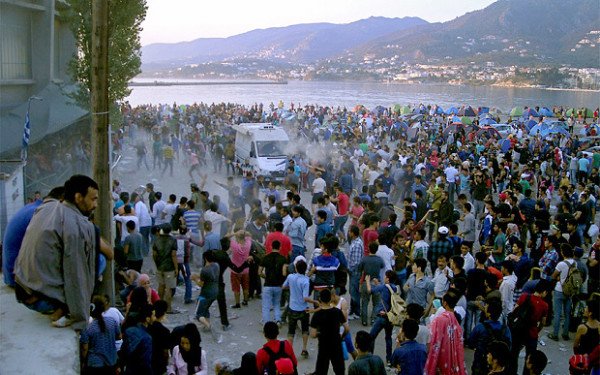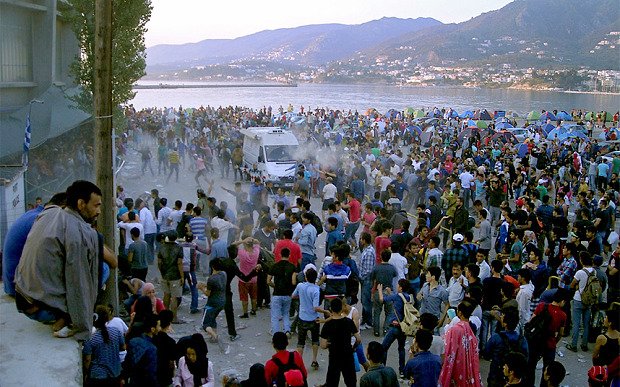Greek ambassador to Austria has been recalled amid sharp divisions among EU states over the refugee crisis.
The move came after Austria hosted a meeting with Balkan states on the refugee issue, to which Greece was not invited.
Meanwhile, EU and Balkan interior ministers have met in Brussels to try to heal rifts over the refugee issue.
Speaking afterwards, the EU’s migration commissioner warned that the bloc’s migration system could be days away from complete breakdown.
Dimitris Avramopoulos said member states had until a March 7 summit with Turkey to curb the number of refugees.
“In the next 10 days, we need tangible and clear results on the ground,” he told reporters.
“Otherwise there is a risk that the whole system will completely break down.”
Austria, Serbia and Macedonia have taken their own steps to limit entry to refugees, angering Greece, which fears the controls will cause a bottleneck. The measures also threaten Europe’s Schengen passport-free travel area that spans 26 countries.
In a statement, the Greek foreign ministry said that the ambassador was being recalled “in order to safeguard the friendly relations between the states and the people of Greece and Austria”.
It said that problems facing the EU “cannot be dealt with, with thoughts, mentalities and extra-institutional initiatives that have their roots in the 19th Century”.
Speaking in Brussels, Greek Migration Minister Yannis Mouzalas said his country would “not accept becoming Europe’s Lebanon, a warehouse of souls”.
Lebanon is home to about a million of the four million Syrians who have fled to neighboring countries.
More than one million refugees arrived in the European Union in 2015, many of them fleeing the civil war in Syria. So far this year, 100,000 refugees have entered the EU illegally – nearly all of them arriving in Greece. More than 400 have died on the sea crossing from Turkey.
The surge in migration coupled with the failure to agree an EU-wide response has led to warnings about the bloc’s survival.
On February 24, representatives from 10 Balkan states attended talks in Austria and agreed to co-ordinate action to limit the flow of refugees.
The meeting drew an angry response from Greece, with the foreign ministry warning that “responsibility for dealing with the migration and refugee crisis cannot burden one country”.
EU interior ministers meeting in Brussels on Thursday have been hearing plans drawn up by Austria and Balkan countries that seek to restrict the numbers entering their borders.
Measures include fingerprinting all entrants and turning back anyone without a passport or holding fake documents.
The countries have also pledged to accept only those they deem to be in need of protection – interpreted by some governments as meaning only Syrians and Iraqis.
Over the weekend, Macedonia barred entry to Afghans at its border with Greece. Angry protests erupted at the border crossings and Greece was forced to transport hundreds of Afghan back to Athens.
The EU has warned of a humanitarian crisis if the disagreements are not resolved.
European Council President Donald Tusk also warned that the failure to make progress towards resolving the crisis could increase the likelihood of the UK voting to leave the EU this year.
Greece has threatened to block all decisions at EU migration summits next month if member states do not agree to take in quotas of refugees.
Hungary announced on February 24 that it would hold a referendum on whether to accept mandatory EU quotas for relocating refugees.
PM Viktor Orban said the quotas “could redraw Europe’s cultural and religious identity”.
In 2015, Hungary’s right-wing government built a razor-wire fence on its borders with Serbia and Croatia to try to limit the flow of refugees.
https://www.youtube.com/watch?v=nfRAc__Nfjc
